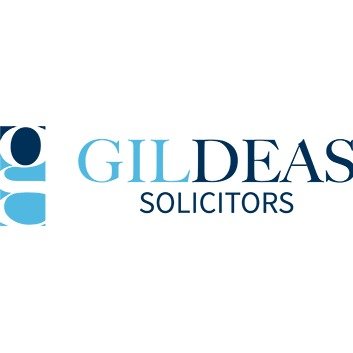
Best Medical Malpractice Lawyers in Glasgow
Share your needs with us, get contacted by law firms.
Free. Takes 2 min.
List of the best lawyers in Glasgow, United Kingdom


Gildeas Solicitors
About Medical Malpractice Law in Glasgow, United Kingdom
The world of medical malpractice laws in Glasgow, and more broadly, the United Kingdom involves a series of legal and ethical matters. Medical malpractice is defined as any act or omission by a healthcare professional during treatment of a patient that deviates from accepted norms of practice in the medical community and causes an injury to the patient. This range from incorrect diagnoses, mistakes during medical procedures, to negligence in aftercare, all under the scope of not attaining the standard of care that is expected in the medical field. Successful cases need to demonstrate duty of care, breach of that duty, harm caused, and resulting damages.
Why You May Need a Lawyer
Medical malpractice cases can be complex due to the intricate medical and legal elements they encompass. You might need a lawyer to uncover these facts, understand your rights, and navigate the complex malpractice laws. Additionally, if you've suffered a severe injury or long-term health effects resulting from suspected medical negligence, a lawyer can help substantiate your claim and seek compensation on your behalf. A lawyer is also vital in cases where negotiations with insurance companies or medical institutions is required.
Local Laws Overview
In the United Kingdom, legal proceedings related to medical malpractice adhere to a strict three-year limitation period, starting from the date the malpractice occurred or when you first became aware of the negligence. Beyond this period, any potential claim might be barred. However, there are exceptions, such as when the victim is a child or mentally incapacitated. The burden of proof rests on the claimant to prove that the healthcare provider's negligence directly caused harm. This requires expert testimonies to establish and it is here where legal expertise becomes invaluable.
Frequently Asked Questions
What constitute medical malpractice?
Medical malpractice occurs when a healthcare professional provides treatment that falls below the accepted standard of care in the medical community, leading to patient injury or wrongful death.
How do I know if I have a case?
Most medical malpractice cases depend on whether the medical professional breached their duty of care, and the breach directly caused harm. You'll usually need expert medical opinions and legal advice to ascertain whether you have a viable case.
What is the time limit for bringing a medical malpractice claim?
In the UK, most medical malpractice claims must be initiated within three years of the date of the incident or the date the victim became aware of their injuries.
What compensation can I receive?
If successful, claimants can receive compensation for pain and suffering (general damages), loss of earnings, medical costs, care and assistance needs, and any other expenses related to the injury (special damages).
Do I need a medical malpractice lawyer?
Given the complexity of medical and legal principles in malpractice cases, using a specialist medical malpractice lawyer can significantly increase the chances of a successful claim.
Additional Resources
If you think you've been a victim of medical malpractice, support is available from government bodies like the National Health Service (NHS), who provide guidelines on reporting a complaint, and charity organisations such as AvMA (Action against Medical Accidents), which provide free advice.
Next Steps
If you believe you have a potential claim, you should seek legal advice from a professional specializing in medical malpractice. They can analyse your case based on the merits, guide you through the legal process, gather required evidence, and represent you against the defendant(s). It is also advisable to document all relevant facts pertaining to your case, including medical records, dates, dialogue and any other form of tangible evidence. This can benefit your claim tremendously.
The information provided on this page is intended for informational purposes only and should not be construed as legal advice. While we strive to present accurate and up-to-date information, we cannot guarantee the accuracy, completeness, or currentness of the content. Laws and regulations can change frequently, and interpretations of the law can vary. Therefore, you should consult with qualified legal professionals for specific advice tailored to your situation. We disclaim all liability for actions you take or fail to take based on any content on this page. If you find any information to be incorrect or outdated, please contact us, and we will make efforts to rectify it.


